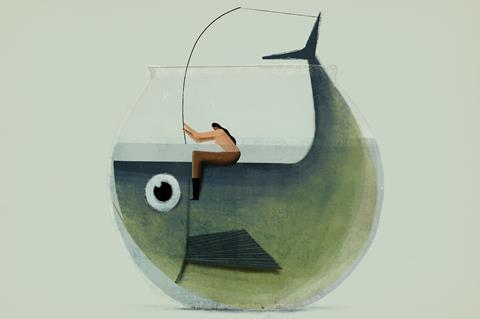Reel them in with these strategies to improve the quality of student learning and working in experiments

During teacher training I was encouraged to speak as little as possible during lessons and to do as many practical tasks with students as possible. I was told to let students discover as much as possible themselves from practical work, as real scientists do.
After a year or two of teaching I hated practical lessons. Students were learning little and occasionally made incorrect discoveries. I began to avoid planning practical work for my classes. However, reading about cognitive science over the last few years has encouraged me to alter the way I conduct practical work to make it more effective.
Remembered for the wrong reasons
The key cognitive scientific principle is best summed up by Daniel Willingham in Why don’t students like school? as ‘memory is the residue of thought’. Students need to think about the things they need to remember.
I once booked the studio for a year 7 class to choreograph dances to represent the different signs of a chemical reaction taking place. A fortnight later few students could remember the signs, but many could remember who had forgotten the steps to their routine. The mistake I had made, was to ask my class to think about dancing, so they did.
I ditched the hooks and competitions
Attention-grabbing hooks are well meant, but engagement and learning are not the same thing. Similarly, competitive quizzes lead students to think about the competition or speed of their answers rather than the science. I ditched the hooks and competitions.
Students are no more likely to remember something they have discovered for themselves than something told to them. When they discover things for themselves, they can make incorrect discoveries if they complete practical work incorrectly.
Metal displacement reactions with four different metals and four different salt solutions is a complex practical for novices to complete. I now slow this practical down.
Students complete each individual reaction together with the class so that we can discuss each reactant pair before moving on to the next. I like to use Ebbinghaus’ forgetting curve, so I teach theoretical concepts separately in a preceding lesson before practical work. Students have a chance to forget the concept, then strengthen their memory during the practical. I reserve pure discovery learning for tasks that are difficult for students to get wrong, such as measuring and plotting a cooling curve for stearic acid.
Have a strong hypothesis
Real-world science is not done blindly, it is hypothesis driven. Scientists use their expertise to create a hypothesis, then carefully conduct an experiment to investigate. If students aren’t able to predict what will happen during a practical before they start, they probably aren’t ready to complete the practical work.
Make hypothesis generation quick and accessible to students
While it might be difficult for our novice students to construct hypotheses, we should encourage them to think things through before starting. I like to make hypothesis generation quick and accessible to students by using techniques, such as two-part multiple choice questions (see example below), to guide students to a hypothesis. By asking students for their hypothesis before they start practical work, you direct their focus during the work to the key learning point of the lesson.
Similarly, I use imitation and questioning to extend student learning. For example, during the complex electrolysis of solutions topic, I show the students how to use the practical equipment by demonstrating the electrolysis of sodium sulfate solution. I then ask them to predict what would be different if the solution was copper sulfate. I take answers (hypotheses) from the class and then get the students to conduct the second half of the practical themselves with the key question at the forefront of their minds.
Applying these techniques to practical work in my classroom has had a big effect on the quality of practical work done by my students, and the quality of learning that takes place during these lessons.
Hypothesis generator example
Q 5 g of small marble chips and 5 g of large marble chips are treated with hydrochloric acid. Which chips will produce CO2 gas fastest?
a) The small marble chips
b) The large marble chips
c) The rate will be the same.
Because …
i) the large marble chips touch more acid;
ii) the surface area of the small chips is bigger;
iii) the masses are the same.









1 Reader's comment